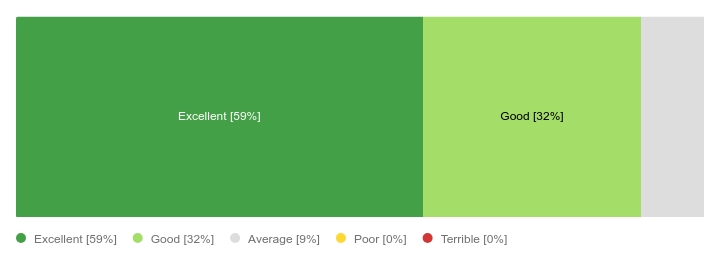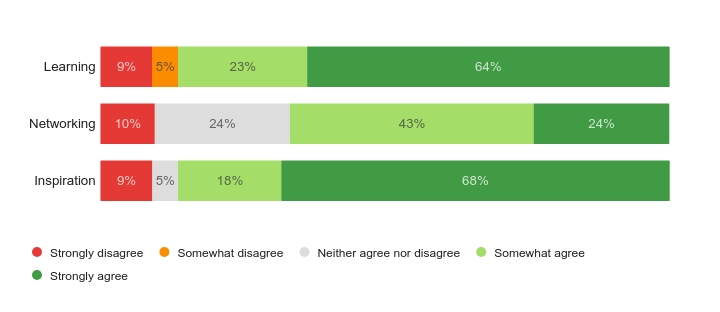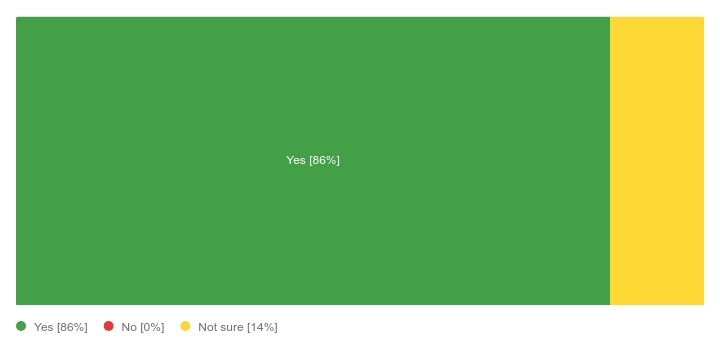Aloha TCC 2024: Graduate Students on a Virtual Field Trip

The TCC (Teaching, Colleges & Community) Hawaii Online Conference is an annual event focusing on emerging technologies and innovative practices in online teaching and learning. The conference invites educators, support staff, librarians, student affairs professionals, graduate students, administrators, and consultants to share their experiences and insights on online and blended learning in a post-pandemic world.
The TCC 2024 conference theme emphasizes “Trends, Engagement, and Student Voices in Online Learning,” reflecting a focus on the evolving landscape of online education and the importance of including student perspectives in these discussions. The conference has a long history, dating back to 1996 when it was founded by Dr. James Shimabukuro, and has adapted over the years to incorporate various online platforms for its sessions.
The TCC conference is known for its global reach and community-oriented approach, offering a platform for participants to network, share expertise, and explore the use of emerging technologies in education. It is an extremely welcoming conference for student participants.
Conference Field Trip
The current Design Thinking class of graduate students in the Master of Education program at the Asian University for Women had the opportunity to go on a ‘field trip’ to this year’s conference. The course ‘Design Thinking for Education’ covers the topic of design thinking for problem-solving in education from multiple perspectives. The course operationalized principles of design thinking, instructional design, and learning theories to equip learners with foundational knowledge and skills for designing learning experiences in a range of contexts.
AUW educates women who are displaced from or marginalized in their home countries/communities – many past and current students are from Afghanistan. The Masters of Arts in Education is the first graduate program at AUW and was launched in 2022. It includes women from Afghanistan, Bangladesh, India, Indonesia, and Pakistan, as well as students from ethnic minorities such as the Rohingya community, the indigenous community of Bangladesh and Sindh province of Pakistan. The hybrid program is run by faculty joining via Zoom and Teaching Fellows supporting the students on the ground. An important aspect is to broaden the perspectives through guest speakers and engagement with an international community of scholars and educators.
25 students from the Design Thinking Class of 2024 were generously granted free admission by the conference organizer. Here is Curtis Ho: “We are eager to see your students from a different region of the world join us at TCC. Hopefully they or other students can join as presenters or poster participants in future TCC conferences”.
Student Feedback
I asked the students to attend any part of the program that they found most interesting – at least three sessions – and share their impressions in a short survey.
22 Students responded to the survey. Each student attended between three and four sessions. Due to the time difference, some also viewed recordings and many stated that they are planning to review session recordings further to deepen their understanding.
The students attended a variety of sessions across different topics:
- Adaptive Learning Technology (ALT) and Instructional Design:
- ALT can personalize instruction and maintain student interest. It was discussed alongside the ARCS model (Attention, Relevance, Confidence, Satisfaction), which helps in improving learning experiences. “Another topic at the conference was Adaptive Learning Technology (ALT), which can change how we learn or teach by personalizing it for each person. I learned the difference between Adaptive Learning and Personalized Learning, which was really interesting”.
- AI in Education:
- Multiple sessions explored how AI tools can be integrated into educational practices, from creating open-access educational content to enhancing academic research, teaching methodologies, professional development and technology acceptance models. The students enjoyed learning about new tools such as NotebookLM, and Gemini. The sessions emphasized the importance of using these tools ethically and effectively to enhance learning while preserving academic integrity. A topic that resonated with students was the use of AI for professional portfolio development. The effective use of AI in professional development settings was illustrated, including how AI tools can support continuous learning and adaptation. One presentation featured an EdTech Books Project that involved students from the Asian University for Women who created an open-access textbook about and with AI.
- Online Learning:
- The rapid shift to online education during the COVID-19 pandemic highlighted the need for robust support systems for both students and faculty. Students appreciated learning about effective strategies for integrating technology, focusing on maintaining engagement and adapting to new learning environments. They also enjoyed specific strategies such as ‘Microlearning’.
- Metaverse
- The concept of the Metaverse intrigued students. One student specifically mentioned the philosophical insights into the digital and physical universes and connections to science fiction writing – specifically Stephenson’s Snowcrash. Discussions also covered historical perspectives, providing context for current educational practices.
These are the sessions that students highlighted specifically:
- Generative AI Meets Open Pedagogy: An EdTech Books Project
- Next Gen AI: NotebookLM and Gemini – Friend or Foe?
- A Tough Transition to Online Learning During COVID-19: Lessons Learned
- Don’t Cry, Use AI for Your Professional Portfolio
- e-Learning in Short Bursts: Examining Professional Development Microlearning Videos
- Promoting Technology Acceptance of AI Innovations through Professional Development and Policy Alignment
- Incorporating Visual Design into Online Course Design
- Adaptive Learning Technology to Increase Students’ Engagement and Motivation
- It’s Liquid Metaverse
- Finding Educator Freebies in the Metaverse
- Optimizing Student Success: The Impact of Generative AI in Teaching and Learning
- Generative Artificial Intelligence in the Classroom
- From Muggles to Masters: Unveiling the Secrets of English Speaking via ChatGPT and AI in the Hogwarts Language Lab
- Integrating Technology Effectively in Middle Level Classrooms
- Facilitating Faculty Success in an Online Campus
- Good Connections: Exploring the Association between Online Students Engagement, Satisfaction, Technology Acceptance, Self-Efficacy and Final Grades
The conference expanded students’ understanding and appreciation for educational technology., sparking enthusiasm for working within this field. For many students, a significant highlight was the opportunity to meet and learn from a diverse group of educators and experts who are integrating AI into education. The use of AI as an assistive tool in academic settings was a major highlight. Students appreciated learning how AI can enhance productivity and assist in academic work without compromising ethical standards or creativity. The responses not only showcase the diverse topics explored at the conference but also highlight the students’ critical engagement with trends and challenges in the field of education.
- 91 percent of respondents rated their conference visit as excellent or good.
- 87 percent saw it as an opportunity for learning.
- 86 percent saw it as an opportunity for gaining inspiration.
- 67 percent saw it as an opportunity for networking.
- 86 percent recommended offering a field trip to a virtual conference again.

Question: Overall, how do you rate your conference visit? (n=22)

Question: The conference visit was an opportunity for… (n=22)

Question: Should AUW organize a virtual field trip (conference visit) for students again? (n=22)
Virtual Conference Opportunities
This field trip not only expanded their knowledge of the conference topics, but also honed their digital literacy skills, fostering a sense of global community and shared learning. The conference’s interactive sessions and the overall welcoming, collegial spirit enabled networking and opportunities and allowed students to build connections and expand their professional network.
It’s an experiment worth repeating. If you are looking for an opportunity to attend an educational technology online conference with your students, the following venues have free, low-cost or group rate options:
- TCC: https://tcchawaii.org/
- SITE Interactive: https://site.aace.org/online/
- Transforming the Teaching and Learning Environment: https://passhe.info/conference/
- Open Education Week: https://oeweek.oeglobal.org/
Learn More
Kimura, B. Y. & Ho, C. P. (2016). The TCC Worldwide Online Conference: Twenty years of affordable, timely professional development. International Journal for Educational Media and Technology. 10(1), 18-25. http://jaems.jp/contents/icomej/vol10/2_Kimura.pdf
